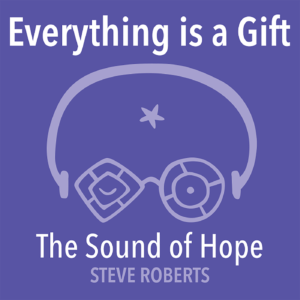When I brought her coffee in bed on our anniversary, as I do many mornings, I said to Dear that it’s a strange thing when the number of years we’ve been married feels bigger than the number of years we’ve been alive.
Which got me thinking: I bet that’s not an uncommon sensation for those who live in wonder at the vastness of existence. People like us, really.
The joy we know today makes it easy to appreciate the time and pain and despair it can take to discover a peaceful heart. It is joy born of becoming ever better at surrender, a skill enhanced by the angels of bullshit who, when necessary, wrench from our clutch whatever we mistake for serious business. Read More








